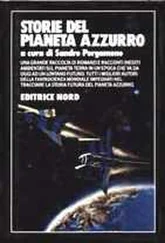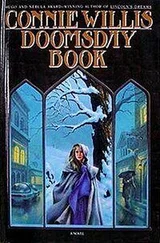Connie Willis - All Clear
Здесь есть возможность читать онлайн «Connie Willis - All Clear» весь текст электронной книги совершенно бесплатно (целиком полную версию без сокращений). В некоторых случаях можно слушать аудио, скачать через торрент в формате fb2 и присутствует краткое содержание. Жанр: Старинная литература, на английском языке. Описание произведения, (предисловие) а так же отзывы посетителей доступны на портале библиотеки ЛибКат.
- Название:All Clear
- Автор:
- Жанр:
- Год:неизвестен
- ISBN:нет данных
- Рейтинг книги:5 / 5. Голосов: 1
-
Избранное:Добавить в избранное
- Отзывы:
-
Ваша оценка:
- 100
- 1
- 2
- 3
- 4
- 5
All Clear: краткое содержание, описание и аннотация
Предлагаем к чтению аннотацию, описание, краткое содержание или предисловие (зависит от того, что написал сам автор книги «All Clear»). Если вы не нашли необходимую информацию о книге — напишите в комментариях, мы постараемся отыскать её.
All Clear — читать онлайн бесплатно полную книгу (весь текст) целиком
Ниже представлен текст книги, разбитый по страницам. Система сохранения места последней прочитанной страницы, позволяет с удобством читать онлайн бесплатно книгу «All Clear», без необходимости каждый раз заново искать на чём Вы остановились. Поставьте закладку, и сможете в любой момент перейти на страницу, на которой закончили чтение.
Интервал:
Закладка:
“Does that mean we can go home and rest on our laurels now?” Cess was asking, grinning.
“Not just yet, I’m afraid,” Tensing said.
Oh, no, here it comes, Ernest thought.
“I’ve asked Bracknell to assign the writing of newspaper articles about Patton to someone else, Worthing,” Tensing said. “I have another job for the two of you.”
Oh, God, they were being sent to Burma.
Tensing leaned across the desk and folded his hands. “The Germans have contacted their agents—or rather, our double agents—and ordered them to report the times and places of V-1 incidents.”
“Why?” Cess asked. “Don’t they already know that? I thought the V-1s were remote-controlled.”
Tensing shook his head. “The Germans know where they intended them to go, not where they went. They’re aimed at the target, Tower Bridge—which, by the way, they have thus far not hit—and a mechanism is set to make a certain number of revolutions and then cut off the fuel supply, at which point the engine switches off and the rocket goes into its dive. But whether they reach the target depends on whether that mechanism was correctly set.”
“So they need the times and locations of the incidents to see whether the rockets are reaching their target so they can make the necessary course corrections?” Ernest asked.
“Yes,” Tensing said, “which puts us in a rather nasty situation. If we provide accurate information to protect our agents’ credibility, we re providing aid to the enemy, and a particularly deadly form of aid at that—obviously an unacceptable situation. If, on the other hand, we give the enemy false information, and it’s disproved by German aircraft reconnaissance, it will—”
“Blow our agents’ cover,” Cess said.
Tensing nodded. “And jeopardize any future deception plans. Which is equally unacceptable.”
“So we need to deceive the Germans into thinking their rockets fell where they didn’t,” Cess said. “How do we do that? Create dummy bomb sites?” Ernest had a sudden vision of an inflatable heap of rubble. He suppressed a smile.
“We did consider that,” Tensing said. “Already-existing rubble moved to another site was used effectively in North Africa. But one of our science chaps has come up with a better plan.”
up with a better plan.”
He unrolled a map of southeastern England on the table. It was marked with a number of red dots, which Ernest assumed were V-1 incidents. “We know from our intelligence that in the trials at Peenemünde, the V-1 tended to fall short of the target, and, as you can see from the map, that problem has continued, with the largest number of bombs falling here”—he pointed at an area southeast of London—“rather than in the center of the city.”
“Which is what the Germans are worried about,” Ernest said, “and why they’re demanding the information.”
“Yes, but it’s in our interest to keep them from correcting the trajectory, to see to it that the V-1s continue to fall short.”
“So you switch the bombs that fall short for the ones that reach their target,” Ernest said.
“Exactly.”
“What?” Cess said, looking thoroughly confused. “How can you switch bombs?”
“Bomb A falls in Stepney at nine o’clock at night,” Ernest explained. “Bomb B falls on Hampstead Heath at half past two in the morning. Our agent tells the Germans bomb A was the one that fell at half past two.”
“In Hampstead,” Tensing said. “And the Germans think it overshot its target, and they shorten its trajectory.”
“Which makes the next one fall short,” Cess said, catching on. “But how do we ensure it falls somewhere where it won’t do any damage?”
“Unfortunately, we can’t, but we can increase the chances of a rocket falling in woods or a field—”
“Or a pasture,” Cess said. “Worthing, this is your chance to eliminate that bull that caused you so much trouble.”
Tensing went on as if Cess hadn’t spoken. “But we can increase the chances of their landing in a less-populated area than central London.”
That’s why you were so eager to point out the thousands of lives we saved, Ernest thought. Because now we’re going to start killing people.
“The retargeting will allow us to provide false information without arousing suspicions regarding our double-agents,” Tensing said. “And to significantly lower the number of casualties.”
And kill people who wouldn’t otherwise have died, Ernest thought. “So what’s our job?” Cess asked. “We’re to match up the bombs?”
“No, I need you two to provide corroboration,” Tensing said, and handed Ernest a photograph of a pile of rubble. It was impossible to tell what it had been from the tangle of bricks and lengths of wood.
“This happened in Fleet Street Tuesday afternoon at 4:32 P.M., but we’re telling the Germans it’s Finchley. The high level of destruction makes substitutions comparatively easy. We’ve told the newspapers they’re not to print any photographs or information about rocket attacks without our authorization.”
“What about the casualty lists in the papers?” Ernest asked. “Won’t the addresses of the people killed give the location away?”
“We’ve thought of that,” Tensing said. “You’ll need to write false death notices to go with the incidents, and we’ve requested the newspapers to hold theirs for several days and list only the name of the deceased. In instances where several members of the same family are killed, we’ve asked them to publish them on separate days, and you’ll do false corroborating stories.”
“What a bloody business,” Ernest said bitterly.
“Yes,” Tensing said. “I’ll need captions and news stories to go with the photographs, and anything else you can come up with—eyewitness accounts, personal ads, letters to the editor—the same sort of thing you were doing before. No direct mention of location, of course. We want the Germans to work that out on their own, and our double agents will be confirming it.”
“When do we begin?” Cess asked.
“Now,” Tensing said, pulling a sheaf of black-and-white photographs from his briefcase and handing them to Cess. “These need to be checked for identifying landmarks or signboards which may need to be cropped out.”
He handed a second sheaf to Ernest. Each one had a memo paper-clipped to it with the actual time and location and the falsified one. “A basic news story for the London dailies,” Tensing said, “and a local connection for the village papers—local resident visiting someone in the town when it hit. You know the sort of thing, Worthing.”
He knew exactly, and he couldn’t have asked for a better job. Not only did he not have to worry about being sent to Burma, but he’d be able to imbed his own coded messages in the articles.
“Cess, you’ll do the London dailies,” Tensing said. “Worthing, you’ll do the village papers. Chasuble will be in on this, too.” Tensing shut his briefcase. “I’d like to speak to him before I leave.”
“I’ll go see if he’s back,” Cess said, and went out.
“Shut the door,” Tensing said to Ernest, and after he did, added, “It is a bloody business. That’s why I chose you. I know I can count on you.”
“What do the higher-ups say about this scheme?” Ernest asked.
“They don’t know yet. We have a meeting to discuss the deception plan with them week after next.”
“And if they vote not to approve it?” Ernest asked, looking at Tensing closely.
“Then I suppose we shall have to think of something else,” he said. “But I can’t imagine them doing anything so irresponsible. It would mean jeopardizing hundreds, perhaps thousands, of lives—so many that if I was told they’d voted the idea down, I’d be forced to conclude that the person who told me had got the story wrong.”
Читать дальшеИнтервал:
Закладка:
Похожие книги на «All Clear»
Представляем Вашему вниманию похожие книги на «All Clear» списком для выбора. Мы отобрали схожую по названию и смыслу литературу в надежде предоставить читателям больше вариантов отыскать новые, интересные, ещё непрочитанные произведения.
Обсуждение, отзывы о книге «All Clear» и просто собственные мнения читателей. Оставьте ваши комментарии, напишите, что Вы думаете о произведении, его смысле или главных героях. Укажите что конкретно понравилось, а что нет, и почему Вы так считаете.












